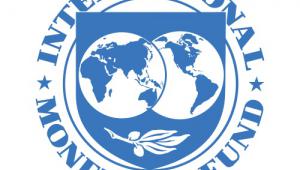By Judith Ugwumadu | 17 September 2014
The Palestinian Authority must enhance its public financial management system in order to strengthen its plea for more aid to help rebuild its flagging economy, the International Monetary Fund has said.
It urged the PA – which consists of the West Bank and Gaza – to work together with international partners to plan a robust fiscal system to effectively organise financial aid, as recent hostilities in Gaza had significantly worsened the economic outlook.
The IMF said that, although progress had been achieved in cash management, arrears management needed to be improved, and reporting and recording of arrears must be more reliable.
‘This will be critical to sustain donors’ confidence that their aid is used well,’ it said.
‘Given significant infrastructure needs, which are exacerbated in the aftermath of the Gaza conflict, the PA’s capacity to manage public investment must be increased for efficient identification, selection and appraisal of projects, and for reliable projections of their capital and recurrent costs.’
The IMF also noted that while the conflict focused on Gaza, its disruptive economic activity also spilled over into the West Bank.
Economic growth in the region last year was 1.9%, a huge drop from 6.3% recorded 2012. The IMF attributed this to political uncertainty and the continued fiscal problems of the PA. Additionally, the effects of the tunnel closure between Egypt and Gaza led to a collapse in growth and a financial crisis in the Hamas government, resulting in unsustainable unemployment levels and rising poverty.
Growth continued to decline in the first quarter of 2014, turning negative in Gaza, and stabilising in West Bank, helped by exports. It added that the situation in Gaza was particularly dire, with a humanitarian crisis slowly unfolding even before the Israel-Hamas conflict.
The IMF noted that the speed and size of the international community’s response to Gaza’s reconstruction and humanitarian needs depended on a stable and lasting ceasefire.
‘The economic impact of the Gaza conflict is difficult to estimate at this stage, but the extent of the destruction and limited resources of the West Bank and Gaza make international mobilisations of aid crucial,’ stated the IMF.
‘The experience after the 2008/09 conflict indicates that without a lifting or at least easing of the blockade of Gaza, especially allowing the entry construction materials, rebuilding efforts are likely to be unsuccessful.
‘At the same time, it is vital that the Palestinian Authority, together with international partners, devise a robust fiscal mechanism to effectively deploy financial aid.’
The IMF recommended that the PA maintains fiscal discipline and presses ahead with fiscal reforms. It said even though some new donor cash assistance is expected in the aftermath of the conflict, it is unlikely to increase the spending envelop for the approved 2014 budget.
This was because much of the assistance might occur outside the PA’s budget or, if through the budget, could be earmarked for Gaza.












